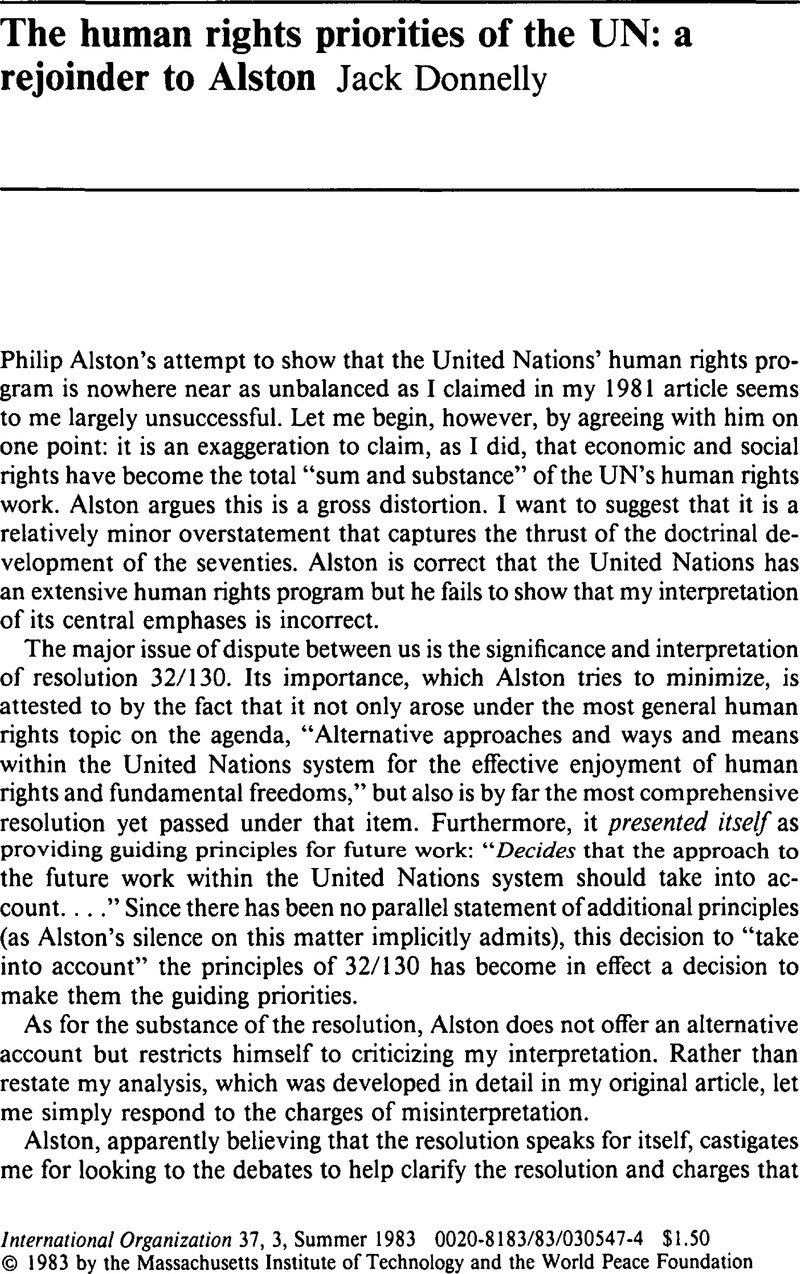Article contents
The human rights priorities of the UN: a rejoinder to Alston
Published online by Cambridge University Press: 22 May 2009
Abstract

- Type
- Comments
- Information
- Copyright
- Copyright © The IO Foundation 1983
References
1. Similarly, the commentators that Alston lists who have cited my piece favorably cover a broad range of the non-Marxist political spectrum.
2. This is clear throughout my discussion and this focus was made quite explicit at p. 635. My use of the term “activity” rather than “doctrine” in the title may have been misleading but I think my focus was clear enough that no one should have been seriously misled.
3. The flowering of the right to development did not really come until 1979 (the Secretary-General's Report is dated January 1979). Thus it also fell largely outside the timeframe of my analysis. Nonetheless, my initial suspicion (in late 1980, when my article was written) seems t o have been confirmed by the ensuing discussion of the right to development, which reflects much of what is worst in the UN's treatment of human rights questions. For my own detailed assessment of this alleged human right, see “The Right to Development: How Not to Link Human Rights and Development,” in Welch, Claude E. Jr and Meltzer, Ronald I., eds., Human Rights and Development in Africa: Domestic, Regional and International Dilemmas (Albany: State University of New York Press, forthcoming)Google Scholar.
- 1
- Cited by


